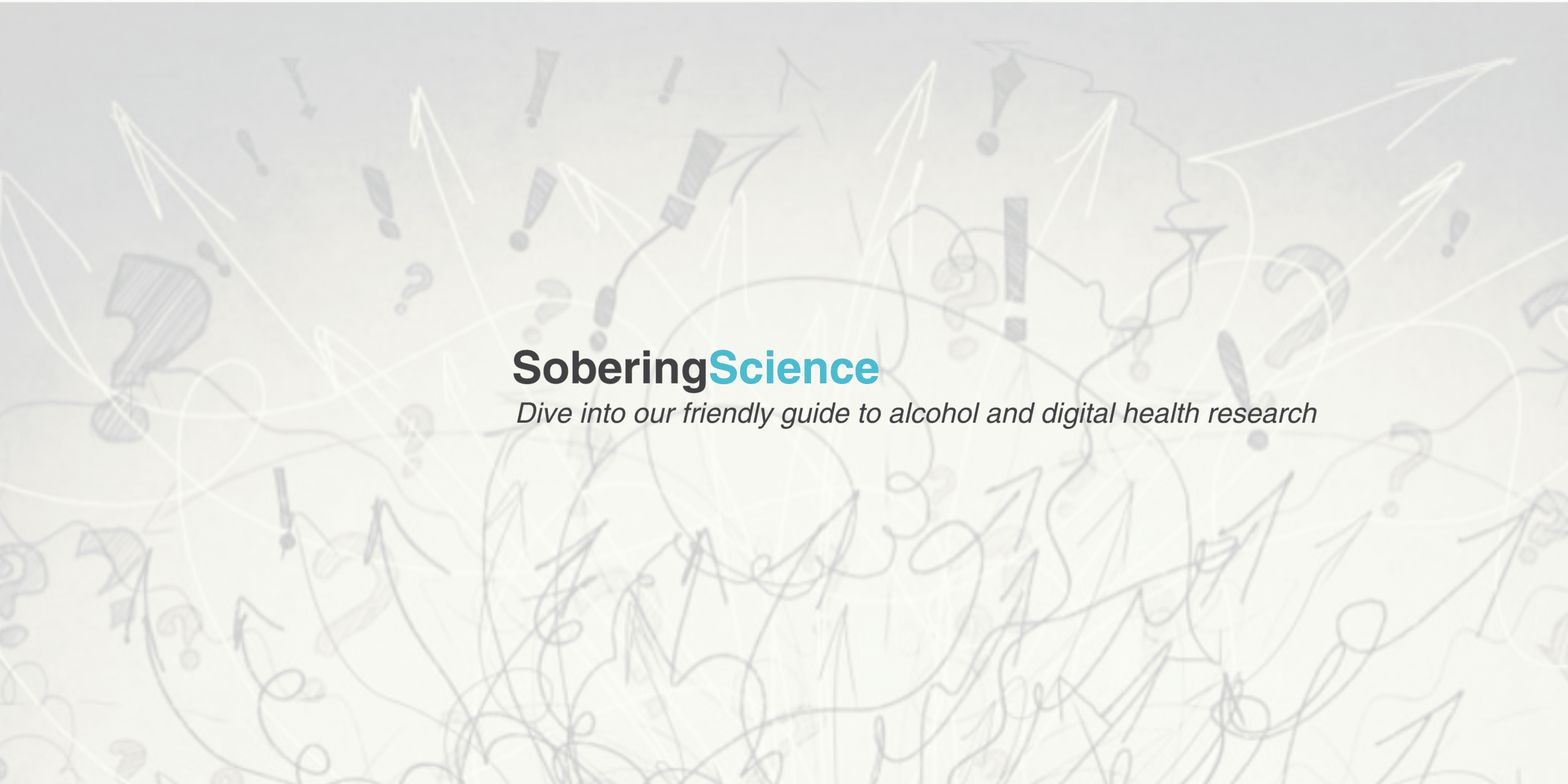
When the chemist is promoting alcohol, do we have a problem?
This week’s guest blog is from Cancer Council Western Australia, and it questions whether the existing system of regulation for alcohol advertising strikes the right balance between a company’s desire to promote its products and society’s need to protect its vulnerable members.
How well do you think we regulate alcohol advertising in Australia?
Self-regulation exists in a number of industries, like financial services and pharmaceuticals. And, while this can help to contain the growth of government bureaucracy, it also carries obvious potential for conflicts of interest. Many people are unaware that alcohol advertising regulation in Australia is limited to a voluntary system managed by the alcohol and advertising industries. This means that the companies that spend millions of dollars each year promoting their products are also in charge of regulating not only what alcohol ads can say, but also where they can be placed.
So, when an alcohol company produces a promotional campaign that crosses into the grey-zone of acceptability and responsibility, the pros and cons are judged by a system designed by people whose livelihoods are impacted by its decisions. And, as we all know, it can be difficult to get someone to oppose something when the success of their business depends upon them accepting it.
A recent example highlights this problem. The alcohol industry has long jumped on Father’s Day for promotional reasons and encouraged us to buy Dad his favourite drink. But this year, one company took things a step further and encouraged us to spoil Dad with a bottle of Victoria Bitter (VB) fragrance. Not an actual bottle of VB (an iconic Australian beer), but ‘Thirst: A Scent by VB’.
The packaging was carefully done to preserve the branding and style of a real VB bottle and it was advertised for sale at Chemist Warehouse stores across the country in the lead-up to Father’s Day. One poster outside a Chemist Warehouse in Western Australia had an image of a child hugging a man next to the words “#1 FOR FATHER’S DAY”. Underneath were three fragrances, including Thirst: A Scent by VB. The launch received national media coverage and the fragrance was promoted through a television commercial, social media posts, and advertising on the Chemist Warehouse website. It was also supported by the National Rugby League and promoted by prominent players.
On one level, the concept of wanting to smell like beer makes this an obvious ‘novelty gag’ sort of present. Harmless fun, right?
Well, maybe not. The ‘trainer wheels’ hypothesis of marketing holds that it is possible to instil brand loyalty in children for brands they cannot yet purchase, and make them fully ready to purchase preferentially by the time they come of legal age. This can be done by exposing them to the brand and its imagery in positive and emotionally rewarding contexts (hint: giving their dad a Father’s Day gift is very emotionally rewarding for a kid).
We had concerns that this well-known beer brand was effectively being promoted on posters inside and outside Chemist Warehouse stores. Customers, many of whom would be families with children, would also be seeing ‘VB’ on the shelves, thereby normalising the brand in a respectable healthcare setting. Applying well-known alcohol branding to non-alcohol items not only increases the volume of alcohol marketing we are surrounded by, but it places alcohol promotions in situations that might otherwise have been free of drinking cues. We’ve seen other recent examples of the VB branding being extended into such innocuous categories as Victoria Bitter tea and VB-branded ‘ugly sweaters’ for Christmas in July.
Our complaint to the self-regulating body was dismissed. Carlton & United Breweries, the owner of VB, said that the Father’s Day poster outside the Chemist Warehouse store did not appeal to children or young people, “as the intended recipient of any gift on Father’s Day, namely fathers, are predominantly adults”. The Panel agreed the poster was directed towards adult males.
Alcohol marketing has been around for a long time and it’s becoming difficult to escape pro-alcohol messaging. The alcohol industry spends a lot of money trying to convince us that alcohol is an essential part of our lives. Alcohol brands encourage us to drink at the end of the work week, while watching the footy, at a girls’ brunch, and even in the bath. Alcohol is apparently needed to celebrate any occasion, such as Valentine’s Day, Easter, and Mother’s Day. And now, we’re even exposed to alcohol branding at the local chemist.
It’s not just children we need to think of when it comes to alcohol marketing.
Living in a world full of alcohol promotion makes it incredibly challenging for people who struggle with living alcohol free, as Shanna Whan from Sober in the Country has written about.
So we’re interested in your thoughts and experiences on this:
- Do you think the existing system for regulating alcohol advertising strikes the right balance between the manufacturers’ need to promote their products and the community’s desire to shield vulnerable members from those messages?
- Have you noticed any particular marketing campaigns for alcohol recently that concerned you?
Let us know in the Comments section below.
You can also email examples to the Alcohol Programs Team at Cancer Council WA on alcoholprograms@cancerwa.asn.au.











Alcohol advertising, like gambling and betting, is completely out of control in this country. They all talk about gambling responsibly, what about advertising responsibly? And our regulating bodies simply dismiss the concerns. Alcohol consumption is a bigger problem than Covid, yet we have moved out country into the biggest deficit we have ever seen to counter Covid – what have we done about alcohol? Nothing..sad state of affairs
The balance is definitely on the side of the manufacturer and therefore against the welfare of community. Placing an alcohol scent on a pharmacy shelf or advertising board is a very bad move… even dangerous in my opinion.
Every second commercial in Australia is for alcohol or gambling. Society is doomed.
I find this incredible. Sure, the intended ‘recipient’ is a Father, but the intended ‘purchaser’ would therefore be a child and highly likely under the legal age. Therefore, the product is appealing to those who would purchase it for the recipient. I can’t see this any other way.
I believe that it is absolutely inappropriate and unacceptable that alcohol companies are allowed to sponsor motor racing.
I think this crass product and selling it in chemist shops are both inappropriate because they definitely seem to me to be sending a message to potential consumers of any age that smelling like beer is a fun and desirable way for a man to smell. Surely it isn’t, not even in Australia the home of the beer swilling male?
Children do buy dads novelty gifts and a chemist shop gives an air of respectability to the product that is unwarranted. I’m surprised that chemists have allowed this to happen in their name.
It’s just unacceptable that this brand can be promoted and sold in a chemist. It’s totally normalising consuming alcohol and completely disregarding those who do have or may go on to have issues with alcohol. Sometimes these issues are life destroying. For a health care setting to sell this brand is despicable. For those of us struggling with alcohol and for impressionable young people it just sends the wrong message.
Celine WA
Having an alcoholic 29 year old daughter has made me acutely aware of how pervasive alcohol advertising is ; the recent AFL grand final being a case in point. I think all alcohol advertising should be banned if we are trying to make real systemic change to our alcohol drinking habits and model to younger generations a better way to celebrate and live. Alcohol causes more suffering and harm than any other drug in Australia. Kudos to the West Australian Cancer Council. In a time where every time I watch the news or television there are trigger warnings for just about everything ; why not with alcohol ? I have seen close hand how harrowing the disease of alcoholism is . And for every alcoholic several people around them will be greatly impacted . What is societies responsibility therefore ? Primarily to the alcoholic , but also to those trying to support them in their sobriety. I would like to see all alcohol advertising banned , just like we did with smoking.
The Jacobs Creek ad campaign last year, Bring Your Australian (still available on YouTube), troubles me. Whilst on the surface the ad is espousing inclusivity, the underlying message, particularly to immigrants (of which I am one), is: you should drink alcohol to be accepted by Australians. The ad is crass (at best) with respect to those that do not drink alcohol for religious or other reasons. Moreover, it plays on people’s wish to fit in (heightened when moving country, I would say) in an arguably exploitative manner.
Yes i looked them up on utube. Makes wine looks sexy and apealing unfortunately
Self regulation in any market rarely works in my opinion. Here in the UK we have The Portman Group which are a not for profit organisation (funded by the drinks industry) and they are their primary function is :
‘The alcohol social responsibility body for the UK, fulfilling the essential self-regulatory role of ensuring the responsible marketing and promotion of alcoholic products to UK consumers under our Codes of Practice.’
Although the PG have their flaws they have done a reasonable job that the big guys (and the small ones too – Brew Dog is a good example) stick to the parameters set to regulate alcohol advertising.
Having worked in drinks industry for 20 years I have quite a strong radar for what would fall foul of the regulator’s eye.
The alcohol advertising in Australia I can only compare to the UK advertising of the 1980’s (before the Portman Group was founded in 1989). This VB campaign would not have even been considered (or even suggested) in the UK as it would have had 0% chance of getting past the regulator.
I watched the NRL Grand Final (throwing my considerable weight behind Penrith…anyone but Melbourne in my books)and spotted the on pitch and LED advertising and I had to Google to see if this was an actual fragrance or a suggestion that some Aussie males may actually use a bottle of beer as cologne….the fact I had to check says where my head is about beer advertising in Australia!
I agree with all the points raised about who this is being targeted at and trust me prior to the PG being formed in 1989 the UK beer industry very much targeted under age “would be” consumers working on the principle that the 18-24 year old market was key to future brand strength and longevity.
One point I would make is that the although this VB campaign (and most other beer advertising in Australia) seems quite crass, regulation has forced beer marketers to become ever more subtle and sublime in their advertising but the key messages are still there and I would argue they are possibly stronger now they can’t be the blunt instrument they once were.
I am genuinely interested to see how ordinary Aussies react to this type of campaign and where it will eventually lead (if anywhere) in terms of increased self regulation….
I am cincerbed about the amount of normalising was f alcohol on tv shows… the Bachelor/Bachelorette in particular is constantly showing everyone on the grog. It implies that dating and drinking go hand in hand. Also the recent ABC show… Drunken Stories was an appalling Idea, especially after the good work that was done with On the Sauce.
We have to be so strong to battle against these things.
Drunken Stories was on Ch10, not the ABC!